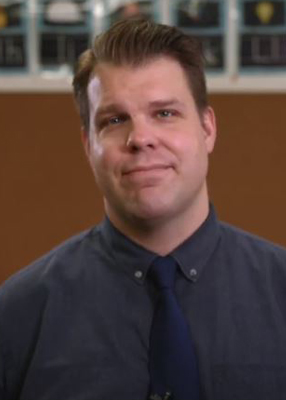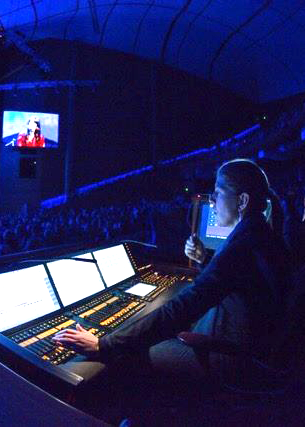Ryan Cardwell

Ryan Cardwell was a member of the inaugural class of Arts Co-op, back in 2000. He took part in the very beginning stages of the program and has great pride for the adventures that it took him on. He was able to land both of his placements in Beijing, where he able to catch the China economic wave at just the right time. In this interview, Ryan offers his insight as one of the original co-op graduates and explains how co-op played an integral role in helping shape his future degree and career.
How did the Arts Co-op Program prepare you for your current career?
Arts Co-op has played an outsized role in my life and career, as my job placements were both here in Beijing, and I was fortunate to have the opportunity to catch the Chinese economic wave just at the right time. That likely wouldn’t have happened without Arts Co-op.
What was your favourite part of being in the Arts Co-op program?
I think the aspect of my co-op experience that I’m most proud of is being a part of the first class of Arts Co-op. It was such an adventure for all of us. I have so many memories of that time, and I feel so grateful to Julie [Walchli, Executive Director] and the whole Arts Co-op team for the opportunities that they have been providing for Arts students for the last two decades. It’s a remarkable achievement to touch so many lives. Thanks again Arts Co-op, and I wish you all the best for the next 20 years.
Do you have any advice for current co-op students?
It’s been my experience that the work I’ve done over the years has been less important than the people I have done the work with. My happiest times at work, no matter the challenge have been done with people whom I both liked and respected. You’re going to spend a lit of time at work. Don’t neglect developing real connections with the people that you work with.
Why would you recommend co-op to prospective students?
Now, more than ever, young people need to learn more about the changing world of work. I was a history student and I gave no thought whatsoever to what I wanted to do. I think many prospective co-op students are in the same boat, or worse, and often have unrealistic expectations about the future. Co-op is a horizon broadening and a grounding experience. Co-op opened up a world of possibilities and also knocked off some of my 22-year self’s cocky rough edges, or at the very least got that process started.
Finally, from an even more practical standpoint, it puts something more substantial onto a young person’s resume, and gives them something to talk about in interviews!
What was the most valuable skill you developed from being a co-op student?
I learned that saying “yes” tends to bring more benefits than saying “no”. I have found that I learn more, contribute more, and benefit myself and others more when I say yes to things. In Canada we get used to routines and policies. In China, things are always changing and in flux. I learned that I shouldn’t worry so much about what the job description says or what the schedule says. Just go with the flow and see where it leads. That lesson has become a mantra: never say no if its possible to say yes.
What was your favourite co-op job and why?
My first job at CIBT for sure. It was in the parlance of The Hero with a Thousand Faces (Campbell, Joseph. 1949) my “call to adventure” and placed me on the path that would become my life and career in China. You never forget your first!
Ryan Cardwell



Ryan Cardwell was a member of the inaugural class of Arts Co-op, back in 2000. He took part in the very beginning stages of the program and has great pride for the adventures that it took him on. He was able to land both of his placements in Beijing, where he able to catch the China economic wave at just the right time. In this interview, Ryan offers his insight as one of the original co-op graduates and explains how co-op played an integral role in helping shape his future degree and career.
How did the Arts Co-op Program prepare you for your current career?
Arts Co-op has played an outsized role in my life and career, as my job placements were both here in Beijing, and I was fortunate to have the opportunity to catch the Chinese economic wave just at the right time. That likely wouldn’t have happened without Arts Co-op.
What was your favourite part of being in the Arts Co-op program?
I think the aspect of my co-op experience that I’m most proud of is being a part of the first class of Arts Co-op. It was such an adventure for all of us. I have so many memories of that time, and I feel so grateful to Julie [Walchli, Executive Director] and the whole Arts Co-op team for the opportunities that they have been providing for Arts students for the last two decades. It’s a remarkable achievement to touch so many lives. Thanks again Arts Co-op, and I wish you all the best for the next 20 years.
Do you have any advice for current co-op students?
It’s been my experience that the work I’ve done over the years has been less important than the people I have done the work with. My happiest times at work, no matter the challenge have been done with people whom I both liked and respected. You’re going to spend a lit of time at work. Don’t neglect developing real connections with the people that you work with.
Why would you recommend co-op to prospective students?
Now, more than ever, young people need to learn more about the changing world of work. I was a history student and I gave no thought whatsoever to what I wanted to do. I think many prospective co-op students are in the same boat, or worse, and often have unrealistic expectations about the future. Co-op is a horizon broadening and a grounding experience. Co-op opened up a world of possibilities and also knocked off some of my 22-year self’s cocky rough edges, or at the very least got that process started.
Finally, from an even more practical standpoint, it puts something more substantial onto a young person’s resume, and gives them something to talk about in interviews!
What was the most valuable skill you developed from being a co-op student?
I learned that saying “yes” tends to bring more benefits than saying “no”. I have found that I learn more, contribute more, and benefit myself and others more when I say yes to things. In Canada we get used to routines and policies. In China, things are always changing and in flux. I learned that I shouldn’t worry so much about what the job description says or what the schedule says. Just go with the flow and see where it leads. That lesson has become a mantra: never say no if its possible to say yes.
What was your favourite co-op job and why?
My first job at CIBT for sure. It was in the parlance of The Hero with a Thousand Faces (Campbell, Joseph. 1949) my “call to adventure” and placed me on the path that would become my life and career in China. You never forget your first!



